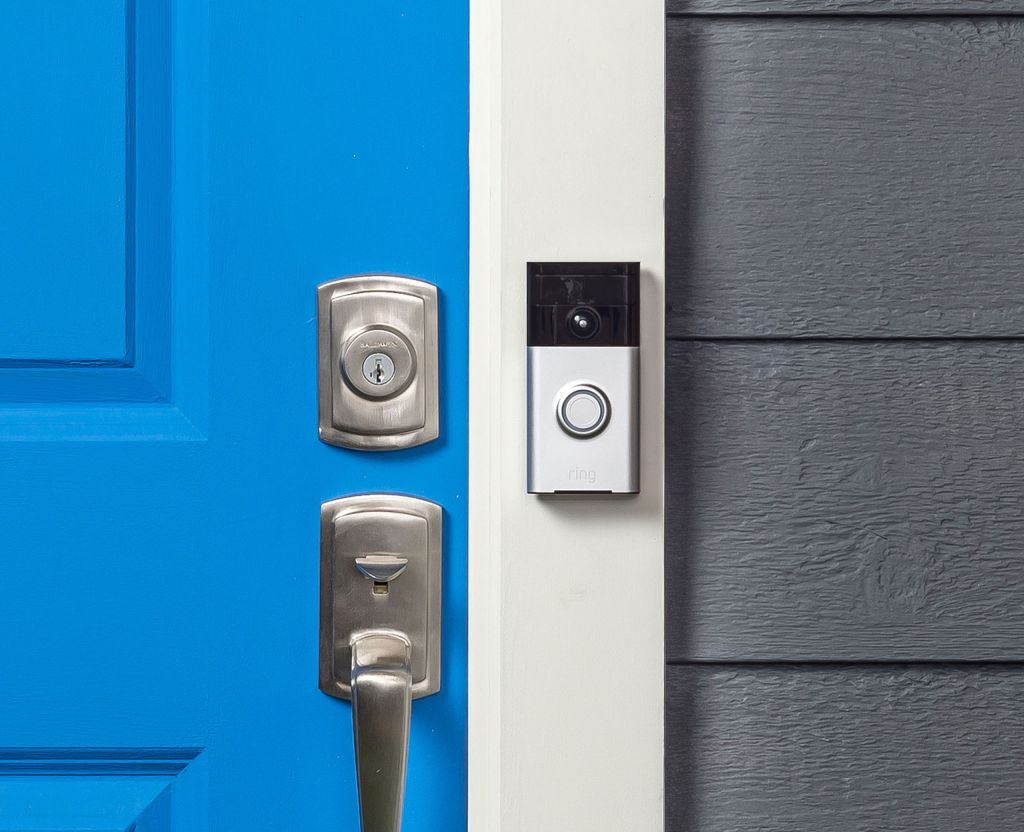Amazon’s home surveillance company Ring is using video captured by its doorbell cameras in Facebook advertisements that ask users to identify and call the cops on a woman whom local police say is a suspected thief.
In the video, the woman’s face is clearly visible and there is no obvious criminal activity taking place. The Facebook post shows her passing between two cars. She pulls the door handle of one of the cars, but it is locked.
Videos by VICE
The video freezes on a still of the woman’s face from two different angles: “If you recognize this woman, please contact the Mountain View Police Department … please share with your neighbors,” text superimposed on the video says. In a post alongside the video, Ring urges residents of Mountain View, California to contact the police department if they recognize her:
Do you live in 94040 (or nearby)? Mountain View Residents: Do you recognize this woman? On May 22, this woman was caught on camera breaking into a vehicle at a Mountain View home near Castro St and Miramonte Ave. If you have any information on the whereabouts of this woman, please contact the Mountain View Police Department at 650-903-6344 (Case Number: 19-3742). And please share this post, so we can all stay alert.
The post is popping up on some people’s feeds as sponsored, as it did on Jon Hendren’s Facebook feed:
Sponsored posts are advertisements that are paid for by the company, and typically are targeted to a specific audience. Hendron lives in the Mountain View area. Ring confirmed to Motherboard that it did sponsor this post.
Amazon purchased Ring in 2018. The company sells surveillance camera systems, and recently filed two patent applications for facial recognition technology in its cameras that would automatically alert law enforcement to “suspicious” people. Its “Neighbors” app has become a de-facto private neighborhood watch, in which people who own Ring surveillance cameras (and others who simply have the app) discuss “suspicious” activity in their communities.
A post on the the Mountain View Police Department’s websites details the incident and also shares an image from the Ring camera. “Footage obtained from a neighbor’s home captured a woman who is believed to be the suspect in the theft,” the post says. The woman is suspected of stealing someone’s purse and wallet from inside a car, and making a series of purchases around town with those stolen credit cards.
A spokesperson for MVPD told Motherboard in an email that “while we did not ask Ring to post footage, the additional outreach, and the additional eyes that may see this woman and recognize her, are most welcome and helpful!” A spokesperson for Ring told Motherboard in an email that its Facebook post encourages communities to work with local cops to “help keep neighborhoods safe.”
“Alerts are created using publicly posted content from the Neighbors app that has a verified police report case number,” the company said. “We get the explicit consent of the Ring customer before the content is posted, and utilize sponsored, geotargeted posts to limit the content to relevant communities.”
Police departments request information from private companies all of the time. But Ring’s call to action shows how Amazon advertises Ring as a vigilante extension of law enforcement.
Read more: Amazon’s Home Security Company Is Turning Everyone Into Cops
Ring is also using the image of a woman who is innocent until proven guilty and calling her a thief in ad that it’s paying to get in front of a targeted audience in order to sell more home surveillance equipment. The company doesn’t claim to know for certain that she’s committed a crime, and the police have yet to catch or convict anyone on this case. Amazon has also sold Rekognition, its facial recognition software, to cops around the country, which is worth keeping in mind as the company sells internet-connected residential surveillance cameras.
This isn’t the first time Ring has worked with the cops: Publicly-available content on the Neighbors app, a social platform for Ring users that acts as a virtual “neighborhood watch,” is open for law enforcement to peruse. Cops can request content from users about locations, dates, and time frames of specific incidents. Users get push notifications from the police about crimes in their area, and view where it happened on an interactive map.
Previously, Motherboard has found that a lot of what happens on Neighbors to be predictably ugly. Racial profiling abounds on the platform, coded as public safety and efforts toward the greater good. When someone reports a crime on Neighbors and says they’ve filed a police report, a Ring employee will sometimes reply to encourage that user to share the case number and officer’s contact information. Once they have a case number, they claim, Ring can use the video to help law enforcement.
The Intercept has also reported that Ring built a portal within Neighbors for law enforcement to request and access camera footage and talk with users directly about cases.
Ring plays into people’s mistrust of strangers. The company’s official Twitter feed is a mix of cute animal videos and goofy moments caught at the front door, but that’s not why people purchase surveillance systems. Posting an un-anonymized video of a person suspected of a crime—not a convicted criminal, but a still-innocent person in the eyes of the law—and then imploring users to snitch, is another step toward what Amazon’s really selling: an always-on surveillance state as a way to placate our fears.




